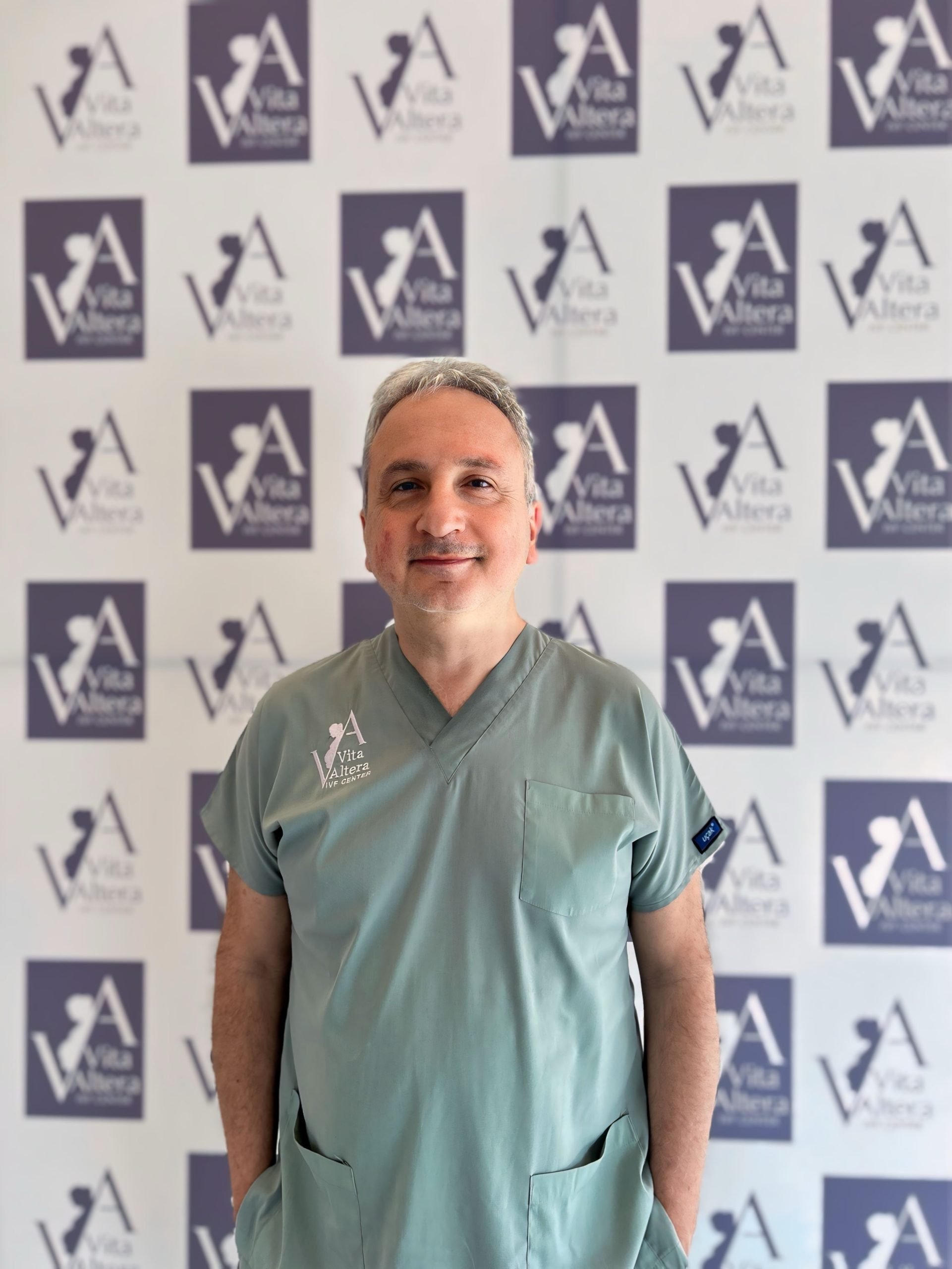
Infertility affects millions of people worldwide, and many individuals and couples turn to IVF treatment as a solution to achieve their dream of having a child. In-vitro fertilization (IVF) is one of the most effective assisted reproductive technologies available today, helping people overcome various fertility challenges. Understanding what IVF treatment entails, its process, associated costs, and success rates is crucial for those considering this path.
What is IVF?
IVF (In Vitro Fertilization) is a medical procedure in which an egg is fertilized by sperm outside the body in a laboratory setting. The fertilized egg, or embryo, is then transferred to the uterus, where it may implant and develop into a successful pregnancy.
The term “in vitro” means “in glass,” referring to the dish used during the fertilization process. In vitro fertilization meaning is simple: it’s a way to help people achieve pregnancy when natural conception isn’t possible due to various factors such as medical conditions, age, or lifestyle choices. Understanding the in vitro fertilization process is crucial for anyone considering this treatment.
What is IVF Treatment?
IVF treatment involves a series of medical procedures aimed at helping individuals with fertility issues conceive. The process can address several infertility causes, including blocked fallopian tubes, ovulation disorders, low sperm count, or unexplained infertility.
Many people searching for “What is IVF in vitro fertilisation?” or asking “Define IVF” are interested in the step-by-step process and its purpose. IVF aims to assist people who cannot conceive naturally by providing them with a controlled environment for fertilization and embryo transfer.
What is the Purpose of IVF Treatment?
The primary purpose of IVF treatments is to help individuals achieve a successful pregnancy. It’s often recommended in cases where other fertility treatments have failed. The procedure can also be used to prevent genetic disorders by allowing fertility specialists to screen embryos before implantation.
While IVF is not guaranteed to succeed in every case, it has significantly improved the chances of conception for many people facing infertility challenges.
IVF Treatment Process
The IVF treatment process involves several stages, from preparing the body for fertilization to transferring the embryo to the uterus. It requires careful planning, monitoring, and expert medical assistance.
Stages of IVF Treatment
The IVF process can be broken down into key stages:
- Ovarian Stimulation
The first step involves taking fertility medications to stimulate the ovaries to produce multiple eggs. This increases the chances of obtaining viable embryos. - Egg Retrieval
Once the eggs are mature, they are collected from the ovaries through a minor surgical procedure. - Fertilization
The collected eggs are fertilized with sperm in a laboratory. This stage results in the creation of embryos. - Embryo Transfer
A selected embryo is transferred to the uterus, with the hope that it will implant and lead to a healthy pregnancy.
The entire process of IVF can take several weeks, and it requires patience and emotional support throughout.
Basic Considerations During IVF
While IVF fertilisation can be a hopeful process, there are important factors to keep in mind:
- Is IVF painful? Some stages of IVF, such as egg retrieval, may cause mild discomfort. However, most patients report that the process is manageable with proper medical care.
- Emotional and Physical Preparation: IVF can be physically and emotionally demanding. It’s essential to have a strong support system and understand the potential challenges.
- Clinic Selection: Choosing the right IVF clinic is a critical factor in ensuring the best possible outcome. Experienced specialists and well-equipped clinics can make a significant difference.
What are the Advantages of IVF Treatment?
There are several advantages of IVF treatment:
- It can help individuals overcome various fertility issues.
- It allows people to preserve their fertility through embryo freezing for future use.
- It provides a chance for people to conceive when other fertility treatments have failed.
For some, IVF abroad offers more affordable and high-quality options. Destinations like Cyprus IVF clinic is known for their reputable services and experienced specialists.
IVF Costs and Fees
Understanding IVF treatment expenses and ivf fees are essential for planning. The price of IVF varies depending on the country, clinic, and specific medical needs of the patient. While discussing specific numbers is not always possible, it’s important to know what factors influence the overall ivf treatment costs.
IVF Expenses: What to Expect?
The overall cost of IVF treatments includes several components:
- Consultations and Diagnostic Tests:
Initial consultations with fertility specialists and diagnostic tests are required to determine the best course of treatment. - Fertility Medications:
Medications used to stimulate the ovaries are a significant part of the overall cost. The dosage and type of medication depend on individual patient needs. - Laboratory Procedures:
The fertilization of eggs and the development of embryos occur in a laboratory, which involves advanced technology and expertise. - Embryo Transfer and Follow-Up:
The final stages of the treatment, including embryo transfer and follow-up appointments, also contribute to the overall cost.
Additional treatments, such as embryo freezing or genetic testing, may increase the expenses. Choosing a private IVF clinic may offer more personalized care, but it’s essential to weigh the costs and benefits.
IVF Success Rates and Contributing Factors
The success of in vitro fertilization (IVF) depends on various factors, including the patient’s age, health status, and the expertise of the clinic. While IVF can significantly improve the chances of conception, it’s important to set realistic expectations.
IVF Success Rates by Age and Health Status
Age is a key factor in determining IVF percentage success rate. Younger individuals generally have higher success rates due to better egg quality, while success rates may decline with age.
Women under 35: This group has the highest success rates, ranging from 60% to 65% per cycle. Younger women tend to have a better egg reserve and higher egg quality, increasing their chances of a successful pregnancy.
Women aged 35 to 40: Success rates in this age group drop to around 30% to 40%. As women age, egg quality and quantity decline, impacting the likelihood of implantation.
Women over 40: Success rates drop further to about 10% to 20%. At this stage, the reduced quality of eggs and increased health risks make IVF more challenging.
Health conditions also play a significant role. Conditions such as ovulation disorders, endometriosis, or polycystic ovary syndrome (PCOS) can impact the likelihood of success. However, with proper medical care, many people with these conditions have achieved successful pregnancies through IVF.
Factors Affecting IVF Success
Several factors influence the outcome of IVF treatments:
- Age of the Patient: Younger individuals have a better chance of success due to higher egg quality.
- Embryo Quality: The quality of embryos plays a crucial role in achieving a successful pregnancy.
- Clinic Expertise: Choosing experienced specialists and well-equipped clinics is essential for improving success rates.
- Lifestyle Choices: Maintaining a healthy lifestyle can positively impact the chances of a successful IVF cycle.
While success rates vary, advancements in fertility treatments have greatly improved the chances of achieving a healthy pregnancy through IVF.
Choosing the Best IVF Clinic
Selecting the right and best in vitro fertilization clinics are one of the most important decisions in the IVF journey. With so many IVF clinics to choose from, it’s essential to consider several factors before making a decision.
Factors to Consider
When selecting a clinic IVF, here are key factors to keep in mind:
- Reputation and Experience:
Look for clinics with a proven track record and experienced fertility specialists. - Accreditation and Certifications:
Ensure the clinic meets international standards and has the necessary certifications. - Success Rates:
While no clinic can guarantee success, looking at the clinic’s success rates can give insight into its expertise. - Support Services:
Emotional and psychological support is crucial throughout the IVF process. Look for clinics that provide comprehensive care, including counseling services.
IVF treatment has provided hope for many individuals facing infertility. Understanding the process of IVF, the factors influencing success rates, and the costs involved is crucial for making informed decisions. Selecting the best IVF clinic and being well-prepared emotionally and physically can increase the chances of a successful outcome.
IVF (In Vitro Fertilization) Treatment Frequently Asked Questions
Who can benefit from IVF treatment?
IVF is beneficial for individuals or couples experiencing infertility due to various reasons, such as blocked fallopian tubes, male infertility factors, unexplained infertility, or advanced maternal age. It can also help same-sex couples and single individuals looking to conceive with the help of donor eggs or sperm.
How is IVF different from natural pregnancy?
In a natural pregnancy, fertilization occurs inside the woman’s body when a sperm cell meets an egg in the fallopian tube. In IVF, fertilization occurs outside the body in a laboratory setting. The fertilized embryo is then implanted into the uterus to achieve pregnancy.
How long does the IVF process take?
The IVF process typically takes about 2 to 3 weeks from the start of ovarian stimulation to embryo transfer. However, the timeline can vary based on individual circumstances, including the preparation of the uterus and the availability of viable embryos.
Are there any risks in IVF treatment?
Like any medical procedure, IVF comes with potential risks. These include ovarian hyperstimulation syndrome (OHSS), multiple pregnancies, ectopic pregnancy, and procedural complications. However, advancements in IVF techniques have significantly reduced these risks.
How successful is IVF compared to other infertility treatments?
IVF has higher success rates compared to other fertility treatments such as intrauterine insemination (IUI). The success rate of IVF depends on various factors, including the age of the woman, the quality of the eggs and sperm, and the overall health of the individuals involved.
Can IVF help prevent genetic disorders?
Yes, IVF can help prevent genetic disorders through a process called preimplantation genetic testing (PGT). This involves screening embryos for genetic abnormalities before implantation, ensuring that only healthy embryos are transferred to the uterus.
Are there additional costs for IVF treatment?
Yes, in addition to the base cost of IVF, there may be additional expenses for medications, genetic testing, embryo freezing, and donor eggs or sperm. It is important to discuss all potential costs with your fertility clinic beforehand.
Does insurance cover the cost of IVF treatment?
Insurance coverage for IVF varies by country, state, and insurance provider. Some insurance plans cover a portion of the cost, while others may not cover it at all. It is essential to check with your insurance provider for detailed information on coverage.
How does age affect IVF success?
Age is a significant factor in IVF success. Women under 35 generally have higher success rates compared to older women. As women age, the quantity and quality of their eggs decline, reducing the chances of a successful pregnancy.
Can lifestyle choices affect IVF results?
Yes, lifestyle choices such as maintaining a healthy diet, managing stress, avoiding smoking and excessive alcohol consumption, and maintaining a healthy weight can positively impact IVF outcomes. Proper preparation can improve the quality of eggs and sperm.
What should I look for in an IVF clinic?
When choosing an IVF clinic, consider factors such as the clinic’s success rates, the experience and qualifications of the medical staff, the range of services offered, and patient reviews. It is also important to ensure that the clinic follows ethical practices and uses advanced technologies.
Are there differences in success rates between clinics?
Yes, success rates can vary between clinics due to factors such as the experience of the medical team, laboratory standards, and patient demographics. It is important to research and compare clinics to find one that meets your needs.
Is it better to have IVF treatment done locally or abroad?
Choosing between local and abroad IVF treatments depends on factors such as cost, convenience, success rates, and legal considerations. Some people opt for treatment abroad due to lower costs or access to advanced techniques, while others prefer local treatment for ease of follow-up care and proximity to home.






